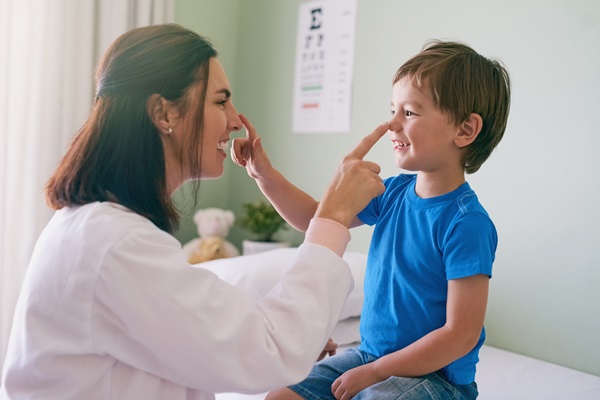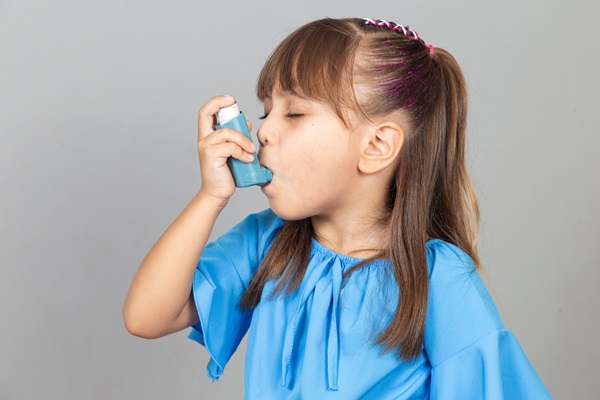Children’s Health CareZachary, LA
Children's health care is a branch of medicine that focuses on the well-being and development of young people. The program offers a variety of services aimed at promoting physical, emotional, and mental health for children from infancy through adolescence. Early access to preventive care, prompt medical treatment, and patient education can affect a child's long-term health and well-being. Children's health care providers address children's unique health and developmental needs, fostering healthier communities and setting the foundation for a healthier future generation.
TKZ Pediatrics offers children’s health care in Zachary and the surrounding area. Our team is here to help your family stay healthy for years to come. Call our office at 1-225-420-1549 to learn more about our services or to schedule an appointment.
What is Children’s Health Care?
Children’s health care refers to the medical services and treatments provided to infants, children, and adolescents. This medical treatment ensures that young people have a strong foundation for their physical, mental, and emotional well-being as they grow and develop. Specialized pediatric care is tailored to the unique needs of children, as their minds and bodies are still changing. Pediatricians work closely with families to address common and complex health issues that specifically affect children.
Additionally, children’s health care includes mental and emotional support. This can involve the pediatrician monitoring for developmental delays, behavioral issues, and mental health conditions (e.g., depression and anxiety). Children’s health care aims to promote lifelong health and wellness in future generations, establishing healthy habits and addressing medical concerns early in the young person’s life.
“Children’s health care aims to promote lifelong health and wellness in future generations, establishing healthy habits and addressing medical concerns early in the young person’s life.”
Services Offered in Children’s Health Care
In children’s health care, pediatricians offer a range of services that focus on preventive care, diagnosis, and treatment. These services are essential in detecting potential health issues in their early stages when they are most treatable, improving the patient’s outcomes. Some common services in children’s health care include:
- Routine physical exams to monitor the child’s growth and development
- Vaccinations and immunization schedules
- Diagnosing and treating acute illnesses and injuries (e.g., ear infections or a broken arm)
- Managing chronic conditions (e.g., asthma or diabetes)
- Mental health assessments and counseling for mental conditions (e.g., anxiety or ADHD)
- Speech, physical, and occupational therapies for developmental support
- Referrals to pediatric medical specialists
By offering a comprehensive approach to children’s health care, pediatricians can ensure that their patient’s physical, emotional, and social needs are addressed as they grow up.
“By offering a comprehensive approach to children’s health care, pediatricians can ensure that their patient’s physical, emotional, and social needs are addressed as they grow up.”
The Importance of Preventive Medicine in Children’s Health Care
While access to medical treatment when children are sick is important, it is equally important for them to have access to preventive medicine to help protect them from getting sick in the first place. Children’s health care providers serve as a resource for families to help reduce the risk of their children from common pediatric health issues and injuries. Some of the preventive care offered in children’s health care includes:
- Behavioral and mental health screenings: Pediatricians can screen children for conditions that may be affecting their cognitive and emotional well-being. These screenings can help detect signs of conditions like autism, depression, and developmental delays.
- Well-child visits: These check-ups occur every few months during the child’s first year of life. After their first year, the visits will become annual. Well-child visits include the measurements of the child’s growth and developmental milestones.
- Vaccinations: Vaccinations for children protect them from infectious diseases now and in the future. Routine childhood vaccines include polio, DTaP (diphtheria, tetanus, and pertussis), MMR (measles, mumps, and rubella), and chickenpox (varicella).
- Blood tests: A variety of blood test screenings can be used through childhood, including signs of anemia, the amount of blood in the child’s blood, and hormonal issues like hypothyroidism.
- Sports physicals: These assessments ensure children are healthy and physically fit to participate in athletic activities. As part of these exams, the pediatrician will assess a child’s medical history, check for heart conditions and past injuries, and assess their overall health.
Early screening for potential health issues allows children to get the treatment they need to support their overall health and development. Fortunately, preventive children's health care services are fully covered by most health insurance plans.
“Early screening for potential health issues allows children to get the treatment they need to support their overall health and development.”
Acute vs. Chronic Health Condition Treatment
Acute conditions are sudden and often short-term, such as infections, injuries, or asthma attacks. Treatment typically focuses on providing immediate relief and addressing the root cause of the issue as soon as possible to restore the child's health. For example, an ear infection may require antibiotics to relieve painful symptoms. Meanwhile, a broken bone may need to be reset and encased in a cast. Once the condition is resolved, children can typically return to their normal status of health.
Chronic health conditions, such as diabetes, sickle cell disease, and congenital heart disease, require ongoing care and management over a long period of time, likely the entire time of a child's life. The focus in treating chronic conditions is not only on alleviating symptoms of the chronic condition but also on preventing complications and maintaining a child's overall health and well-being. In many cases, long-term treatment plans involve medication, lifestyle changes, and regular monitoring by children's health care providers. As a result of this approach, children and their families can better adjust to the changes in their lives and integrate health and developmental care into their daily routines.
“In children’s health care, the approach to treating acute health conditions is quite different from managing chronic health conditions.”
What to Expect
During a child's visit to a pediatrician, parents or guardians can expect the doctor to thoroughly evaluate their child's overall health and development. The visit typically includes a comprehensive physical examination. The pediatrician will check the child's weight and heightto ensure that they are growing at a normal rate. Then, they will assess the child's motor skills and reflexes. Depending on the child's age and vaccination schedule, the doctor may also administer immunizations.
Additionally, parents should anticipate a detailed discussion with the children's health care provider about the child's feeding schedule, sleep patterns, safety concerns, and the child's developmental milestones. The provider will also ask about any health issues that may run in the child’s family medical history, such as congenital heart disease and sickle cell disease.
“Routine visits with a pediatrician set the foundation for ongoing care, helping parents feel more confident and prepared as their child grows up.”
Questions Answered on This Page
Q. What is children’s health care?
Q. What types of services are offered in children’s health care?
Q. What are the most effective ways to prevent illness in children?
Q. What is the difference between treating acute and chronic conditions in children?
Q. What can I expect during my child’s visit with a children’s health care provider?
Schedule an Appointment Today
Is your child due for their next check-up? The TKZ Pediatrics team is here to make children’s health care easier in the Zachary area. Call our office at 1-225-420-1549 to learn more about our services or to schedule an appointment.
Frequently Asked Questions About Children’s Health Care
Q. How often should my child visit a pediatrician?
A. The American Academy of Pediatrics (AAP) has developed comprehensive guidelines for providing well-child care. This is known as the periodicity schedule. When following this schedule, your child should visit the pediatrician frequently for regular check-ups every few months after they are born. After they turn two, they should only need to go annually to monitor their growth, development, and overall health. However, some children may need additional visits if they have specific medical conditions or health concerns.
Q. Why does my child need vaccinations?
A. Vaccines are essential for children as they strengthen their immune systems against serious and potentially life-threatening diseases, such as measles, mumps, and whooping cough. They also provide herd immunity, which protects those who cannot get vaccinated for medical reasons. It is important to follow the recommended vaccination schedule to ensure your child is effectively protected against common infectious diseases.
Q. What happens during a well-child visit?
A. During a well-child visit, Dr. Woodroffe will conduct a thorough physical examination to assess your child's growth, development, and overall health. She will also review your child's vaccination status, provide updates to their immunization schedule, and discuss topics such as nutrition, sleep, and behavior. We invite you to ask questions or voice concerns about your child's health during this appointment to ensure they are on track.
Q. What should I do if my child has an allergic reaction?
A. If your child has an allergic reaction, assess the severity of their symptoms. If it is mild, such as a few hives on their face or neck, administer an antihistamine (e.g., cetirizine, fexofenadine, or loratadine) and monitor their reaction closely. However, for severe reactions, such as difficulty breathing or swelling, use a prescription epinephrine auto-injector (EpiPen) and call 911 or go to the emergency room. Be sure to follow up with us after your child experiences any allergic reaction to discuss the next steps and long-term management of their treatment plan.
Q. What should I bring to my child’s next healthcare visit?
A. If your child is a new patient at our office, be sure to bring in copies of their medical records, including their vaccination history and a list of their current medications. It can also be helpful to prepare a list or concerns you may have about their health and development. If they have a history of being nervous during medical visits, packing comfort items like a favorite toy or blanket can help make the appointment for comfortable for them.





